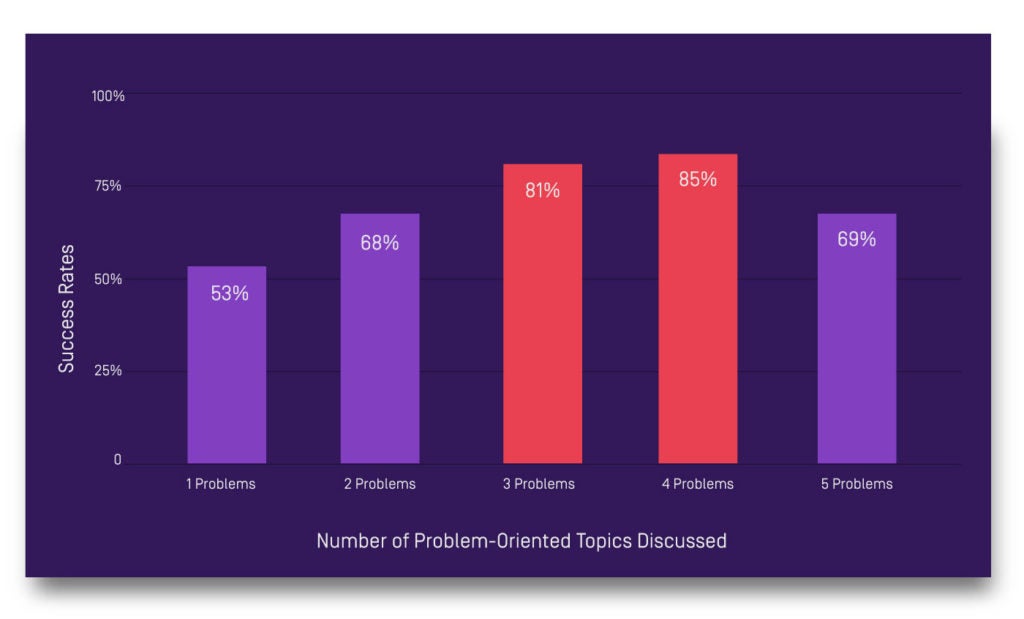Cut the crab
- asking “how are you today?” generally causes prospects to think about how busy they are and how they should get off the call with you as soon as possible
- show respect for a prospect’s time, and your own, is critical
- 30 minutes is the most preferred meeting duration (36%), followed by 13 minutes (31%) and 60 minutes (20%)
Start by talking about them, not you
- tell them what you discovered in your research
- you’ll already distinguish yourself from many of the other salespeople the prospects speak to
- never talk negative about their current system
- speak to the strengths of what you have to offer to enhance their existing investment with your services
- compliment them on material they’ve published
- if you’re selling to a marketer, you might want to focus on a benefit like brand consistency
- for a sales prospect, benefits around shortening their sales cycle will be more relevant
- if the prospect has mentioned a business challenge in an article, quote him/her
Get them to talk
Agree with them
- “I’m sure you have an insurance plan that you’re happy with.”
- the prospect will most likely agree that they do, but because you understand their position, they will instantly feel more comfortable with you
- It’s important that you never disagree with the prospect because this can be seen as arguing. You can acknowledge their objections and agree with their viewpoint, but not their conclusion
Ask questions
- How much money do they want to generate per month?
- How many clients do they need to achieve that?
- How many calls do they need to book consistently?
- What’s their conversion rate regularly?
- Research shows a direct connection between the number of questions a salesperson asks and the success of that interaction

Tell them how you can help
- “I’ve been speaking with a number of [prospect titles] who said they are struggling with [business pain point your services address] and solving that high is on their priority list for this fiscal year. Does that resonate with you as well?
- “My company was able to help [your customer, indirect competitor of the prospect you are calling] to [benefit of your products or services that the prospect should care about based on their role].
- Would you be interested in having a discussion later this week/early next about how we were able to help them [quantified business value, such as increasing business productivity or reducing production costs] in [quantified time]?
Show them you are ok with a "no"
- most prospects you call are going to say that they’re happy with the services or products they currently have
- remain in occasional contact with the potential customer
- send them a recent article or case study they might find interesting
Ask for someone else to talk to
- if they say no, ask if they think there’s anyone else in the organization that might be interested in discussing a particular business challenge or objective
- distinguish you from other salespeople who get a no and just end the call
- ask the first POC if you can cite them as the referral source and if they’d want to participate in a conference discovery call if you can secure an appointment
Ask for a next meeting
- quickly and clearly introduce their big business problem and how you can help them solve it
- ask if they have time for a short demo
Follow-up actions
- email them after the call
- follow up to prevent no-shows
